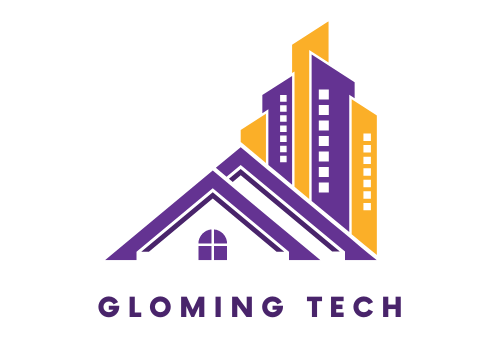Introduction: AI Construction Company
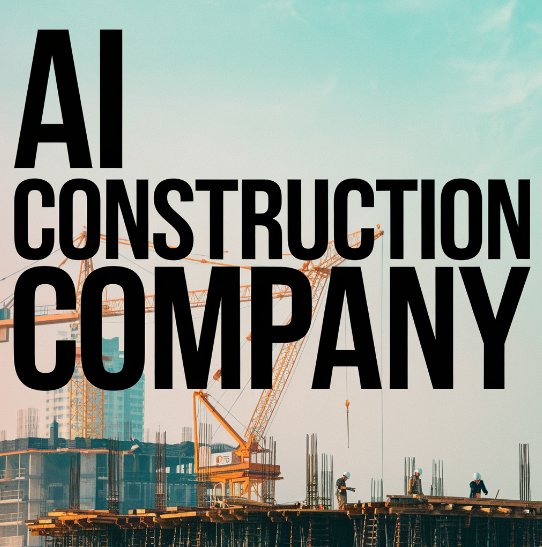
Thanks to unique technology solutions, AI construction companies are changing the construction industry. Leveraging artificial intelligence, the companies improve project management throughput, safety and cost-effectiveness. They include the AI driven systems that manage the project lifecycle from planning to budgeting and site management to making informed choices. Moreover, there is the increasing use of autonomous and robotic systems that substitute workers for time-consuming operations, decreasing risks and enhancing efficiency. Besides, the use of AI helps in resource efficient and wasteful processes too. The more the industry develops into one that employs such technologies, the more valuable AI construction companies will become in offering solutions to the increasing industry needs for efficiency and safety. There is no option anymore when it comes to adopting AI for doing business; it has become a matter of surviving in the current business environment.
1. AI in Project Planning and Design
In regard to construction projects, one impact that revolves around life-cycle cost methodology and the use of appropriate new technologies, particularly that new-ites are unlocking today’s applications, revolves at the design stage. Using such software, historical project data, environmental impact, and regulatory policies related to buildings provide the best-suited designs and construction plans. Building Information Modeling (BIM) uses AI models to select the optimal structural forms and building materials in order to carry out a given construction project, thus decreasing wastage of resources by companies. Additionally, with AI, designers as well as engineers are able to test various designs and pinpoint any flaw before they become an expensive oversight.
Benefits:
- Improved quality in design
- Time swiftness and cost minimisation
- Decreased chances of faultiness
2. Automated Construction Management
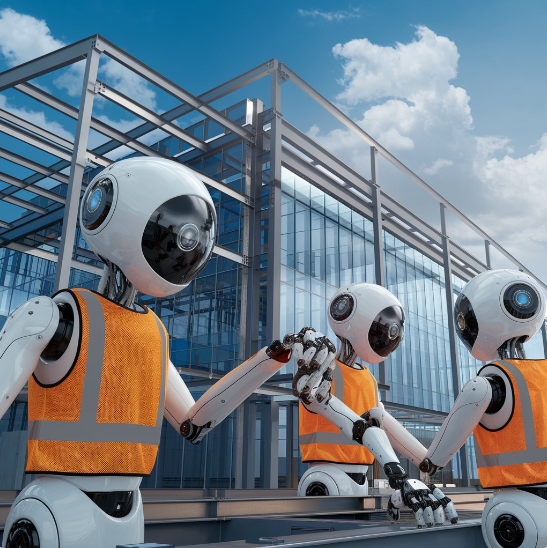
AI’s capacity to integrate several aspects and processes at a time helps the construction management industry tremendously. Construction companies can schedule, resource, and manage site activity on an up-to-the-minute basis through construction companies utilizing AI-enhanced platforms. It is possible to foresee possible delays due to unforeseen factors such as bad weather, problems with the supply chain, or lack of workforce, which would in turn lead to preventing risk escalation by project managers. Additionally, these platforms can also be integrated with IoT devices operating onsite to promote seamless operations and maximize equipment use.
The Main Features are:
- Monitoring and modification functions for each process in real time
- Using ‘what if’ techniques in order to minimize anticipated risks
- Efficient utilization of resources
3. Cost Estimation and Budget Control
Cost estimation is a fundamental component for any construction project and such tasks are best executed by the aid of AI. AI systems can outdo human beings in estimation as they can incorporate past cost data databases, pricing of materials and labor to give precision estimates. Estimating costs in the traditional way is affected by human judgment errors leading to funds being exhausted and the project not coming to completion on time. AI adds relevant factors and dispenses with the areas affected by judgment and hence a high degree of accuracy is attained. Also, AI technology is capable of adapting itself and renewing its understanding with each newly completed project.
Advantages:
- Increased efficiency of the estimation process
- Lower chance of exceeding the budget
- Enhanced accuracy of the estimation process
4. AI in Construction Safety

The pursuit of safety is one of the key factors in the construction industry, and the use of AI is affecting safety on site. Social networks in scope of the construction market and aimed at safety, utilize AI oriented computer vision in the detection of potential accidents by monitoring cameras on sites capturing images and videos. Construction sites can be monitored by AI-enabled drones to avoid dangerous aspects of sites such as weaknesses in physical structures or poor placement of machinery. Providing real time alerts regarding safety concerns to site managers through AI minimizes the occurrence of accidents making a safe working environment.
Key Benefits:
- Identification of hazards in real time
- Higher rates of safety compliance
- Fewer accidents and injuries at the worksite
5. AI-Powered Robotics and Automation
In recent years, there are already real-world applications of new technologies in automation construction works where AI is merged with robotics technology. Heavier machines, like bulldozers and cranes are allocated work with little or no assistance from construction workers, this has enabled the completion of the work faster and with better accuracy. The use of such technology makes it possible to avoid carrying out monotonous or hazardous sections of work, which in turn allows human labor focused on the more sophisticated parts of the project. This not only enhances the productivity and efficiency of the processing, but it also greatly reduces the chances of occurring accidents on the site.
Key Applications:
- Self-sufficient performing earthworks and excavation
- Robots for monotonous and hazardous activities
- Faster and more precise completion of the construction processes
6. AI in Sustainable Construction
In construction, sustainability issues tend to be important with the aid of AI making the work of companies obtain greener targets. The use of AI in projects helps to increase the efficiency in the utilization of resources, minimize pollution, and assess the consumption of energy for thereby rendering a project environmentally friendly. Architectural think-tanks configure non-static pre-construction structures that are also administered on energy efficiency by intelligent systems driven by AI even after the completion of a project.
Impact:
- Lower negative consequences on the environment
- Better use of materials
- Management of energy in buildings that is economical.
7. Challenges of AI Adoption in Construction
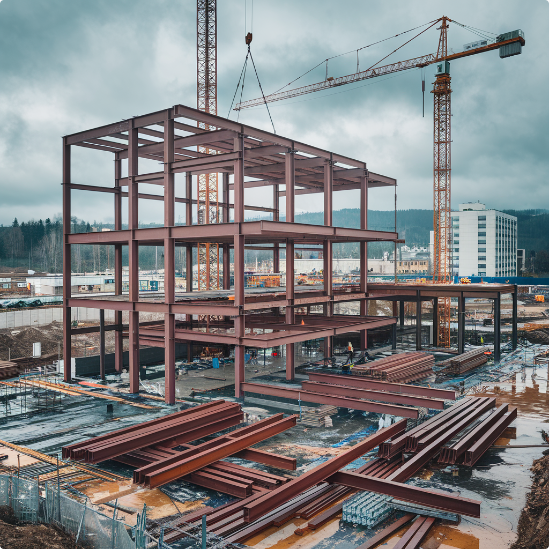
While there is a great potential for AI application within construction companies, it does not mean that it will be very simple. More specifically, there are usually high costs linked with deploying and maintaining AI systems. This may be because historically the construction industry has been quite conservative and does not embrace new technologies Housebuilding industry is slowly adopting innovation and frequently using relatively ordinary methods. There is a requirement for some training for the workers who are required to use the AI-based tools and platforms.
Reasons behind difficulties:
- Expensive pay-off
- Conservatism of the free economies
- Need for specialist knowledge
8. The Future of AI in Construction
With construction becoming increasingly complex, the need for incorporating new technologies is inevitable. The potential for the use of AI in construction is limitless, with machine learning, robotics, and analytics being constantly improved. As the application of AI rapidly advances and becomes less expensive, one can foresee even extensive integration in construction processes- from total robotic and AI operated construction sites to the predictive maintenance of already built houses. Construction companies that are committed to the development of AI technologies today will be at the head of the industry in the coming years.
Trends to Watch:
- Reducing the costs of running the site due to the growth of autonomous job sites
- Minimizing breakdowns and downtime through the use of AI for predictive maintenance
- More integration of AI to most, if not all, stages of construction processes
FAQs: Ai Construction Company
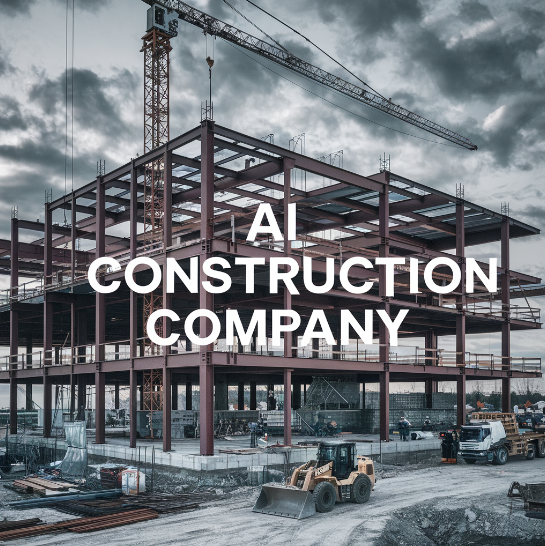
In what way AI is applied in the construction companies?
The application of AI in construction companies assists with enhancing project development, automating construction management tasks, improving the level of safety, making clear and precise cost estimations, and even introducing robots for excavating and moving materials. It is also applicable in risk assessment, real time surveillance and predictive maintenance of construction equipment.
What benefits construction companies can achieve with the help of AI?
AI has a lot of advantages in the construction business such as increased productivity, improved accuracy of project tasks, cost savings, improved safety of personnel on construction materials, rationalization of resources, and enhanced judgment through data collation. While AI is employed, there is less manual terminated work since certain repetitive duties can be delegated to machines.
Is there wisdom in having AI in construction? Does it improve safety within the construction site?
Yes, construction sites are made safer as AI incorporates sensors and drones for detecting danger, monitoring workers’ behavior, and looking for weaknesses in the structure itself during its place. Systems powered by AI can also receive data through IoT sensors and analyze this data to prevent any foreseen incidents.
What specific construction tasks can AI replace?
AI has made it possible to automate activities such as earthworks, excavation, grading, estimating project costs, scheduling, and conducting inspections. Autonomous machines and robots can undertake tasks that are hazardous or monotonous for human operators such as movement of heavy materials.
The implementation of AI systems would require huge amounts of expenditure for construction companies, is this true?
Yes, to carry out an AI strategy might necessitate a lot of investment in the necessary technology and enlightenment for the long run, as the returns from the strategies employed mostly in terms of efficiencies, labor as well as project delays will take longer than the required investment. AI solutions hosted on the cloud accompanied with incremental implementation approaches are also effective in controlling costs.
Conclusion: AI Construction Company
AI is a game changer in construction by introducing new ways of ensuring quality, efficiency, and safety. I will highlight the impact of AI in construction project management on planning and design, supervising the process, controlling costs, and even more. The construction industry is slated for technical advancements due to the already developed AI tools. Being stagnant in understanding and implementing AI tools in construction will eventually translate to the company being less competitive in the market. The ‘nice to have’ mindset regarding AI is fast losing ground and it has become an inescapable aspect of the present-day construction company.
